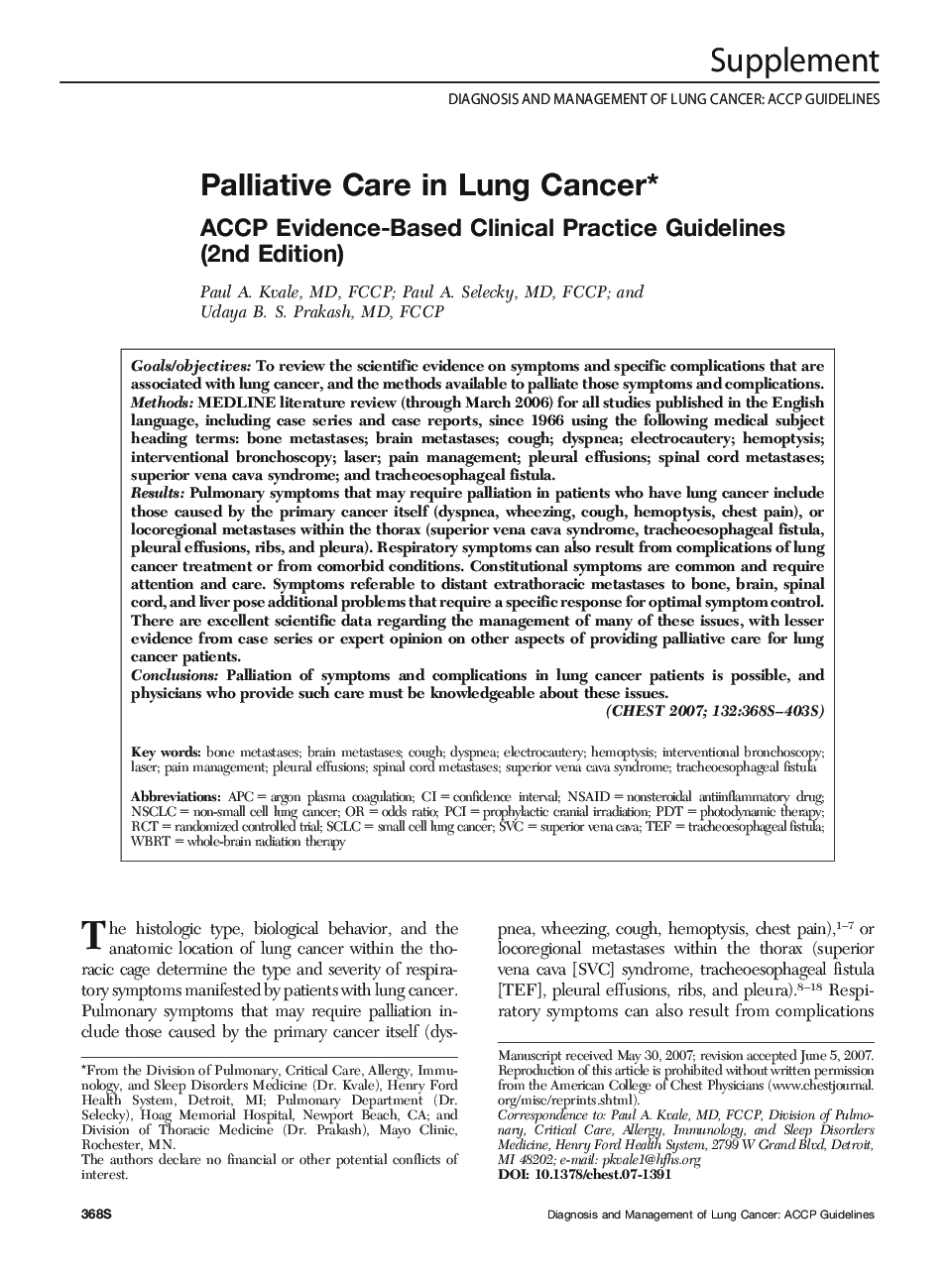| Article ID | Journal | Published Year | Pages | File Type |
|---|---|---|---|---|
| 2906408 | Chest | 2007 | 36 Pages |
Goals/objectivesTo review the scientific evidence on symptoms and specific complications that are associated with lung cancer, and the methods available to palliate those symptoms and complications.MethodsMEDLINE literature review (through March 2006) for all studies published in the English language, including case series and case reports, since 1966 using the following medical subject heading terms: bone metastases; brain metastases; cough; dyspnea; electrocautery; hemoptysis; interventional bronchoscopy; laser; pain management; pleural effusions; spinal cord metastases; superior vena cava syndrome; and tracheoesophageal fistula.ResultsPulmonary symptoms that may require palliation in patients who have lung cancer include those caused by the primary cancer itself (dyspnea, wheezing, cough, hemoptysis, chest pain), or locoregional metastases within the thorax (superior vena cava syndrome, tracheoesophageal fistula, pleural effusions, ribs, and pleura). Respiratory symptoms can also result from complications of lung cancer treatment or from comorbid conditions. Constitutional symptoms are common and require attention and care. Symptoms referable to distant extrathoracic metastases to bone, brain, spinal cord, and liver pose additional problems that require a specific response for optimal symptom control. There are excellent scientific data regarding the management of many of these issues, with lesser evidence from case series or expert opinion on other aspects of providing palliative care for lung cancer patients.ConclusionsPalliation of symptoms and complications in lung cancer patients is possible, and physicians who provide such care must be knowledgeable about these issues.
